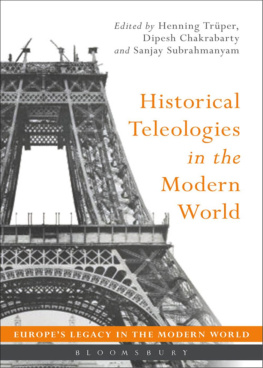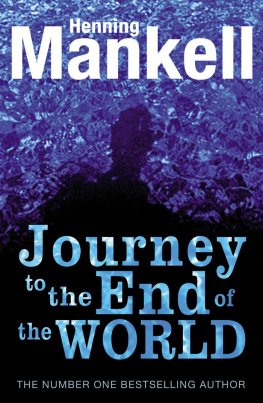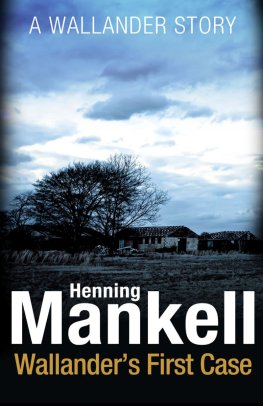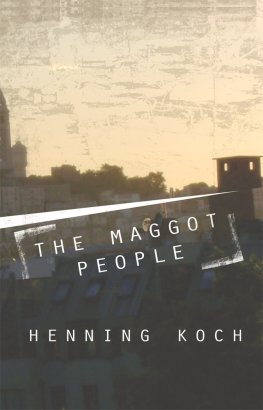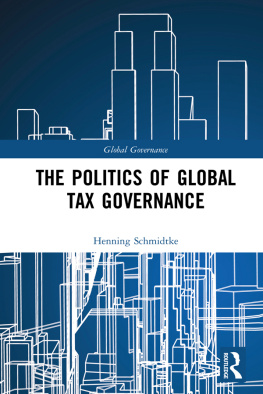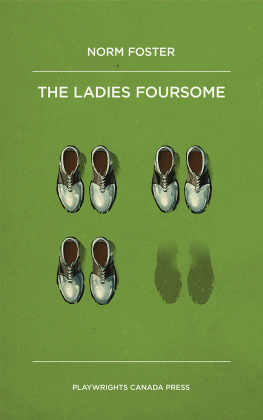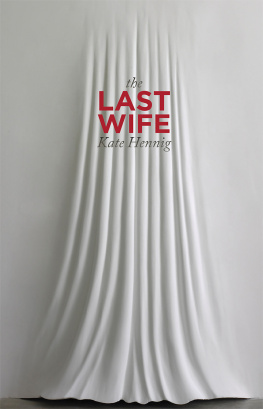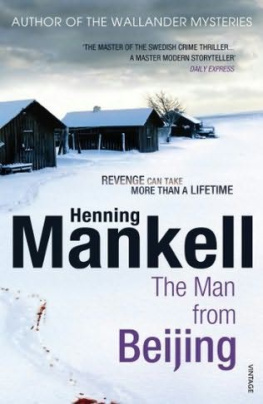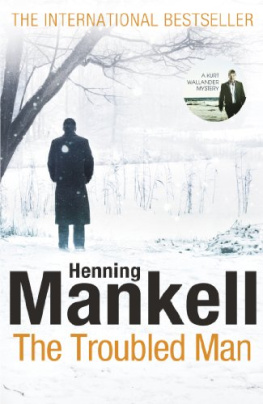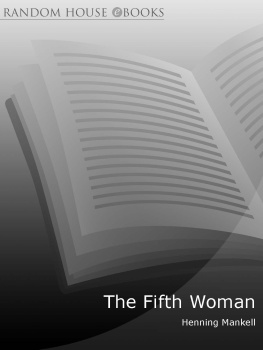Trüper Henning - Historical Teleologies in the Modern World
Here you can read online Trüper Henning - Historical Teleologies in the Modern World full text of the book (entire story) in english for free. Download pdf and epub, get meaning, cover and reviews about this ebook. year: 2019, publisher: Bloomsbury Publishing Plc, genre: Religion. Description of the work, (preface) as well as reviews are available. Best literature library LitArk.com created for fans of good reading and offers a wide selection of genres:
Romance novel
Science fiction
Adventure
Detective
Science
History
Home and family
Prose
Art
Politics
Computer
Non-fiction
Religion
Business
Children
Humor
Choose a favorite category and find really read worthwhile books. Enjoy immersion in the world of imagination, feel the emotions of the characters or learn something new for yourself, make an fascinating discovery.
- Book:Historical Teleologies in the Modern World
- Author:
- Publisher:Bloomsbury Publishing Plc
- Genre:
- Year:2019
- Rating:5 / 5
- Favourites:Add to favourites
- Your mark:
- 100
- 1
- 2
- 3
- 4
- 5
Historical Teleologies in the Modern World: summary, description and annotation
We offer to read an annotation, description, summary or preface (depends on what the author of the book "Historical Teleologies in the Modern World" wrote himself). If you haven't found the necessary information about the book — write in the comments, we will try to find it.
Historical Teleologies in the Modern World — read online for free the complete book (whole text) full work
Below is the text of the book, divided by pages. System saving the place of the last page read, allows you to conveniently read the book "Historical Teleologies in the Modern World" online for free, without having to search again every time where you left off. Put a bookmark, and you can go to the page where you finished reading at any time.
Font size:
Interval:
Bookmark:
Europes Legacy in the Modern World
Series Editors:Martti Koskenniemi and Bo Strth (University of Helsinki, Finland)
The nineteenth century is often described as Europes century. This series aims to explore the truth of this claim. It views Europe as a global actor and offers insights into its role in ordering the world, creating community and providing welfare in the nineteenth century and beyond. Volumes in the series investigate tensions between the national and the global, welfare and warfare, property and poverty. They look at how notions like democracy, populism and totalitarianism came to be intertwined and how this legacy persists in the present-day world.
The series emphasizes the entanglements between the legal, the political and the economic and employs techniques and methodologies from the history of legal, political and economic thought, the history of events, and structural history. The result is a collection of works that shed new light on the role that Europes intellectual history has played in the development of the modern world.
Published:
Historical Teleologies in the Modern World, edited by Henning Trper,
Dipesh Chakrabarty and Sanjay Subrahmanyam
Forthcoming:
Europes Utopias of Peace, Bo Strth
Political Reform in the Ottoman and Russian Empires, Adrian Brisku

Philip Ajouri is currently a Fellow at the Research Association Marbach Weimar Wolfenbttel (Deutsches Literaturarchiv Marbach). From 2005 to 2014 he worked as a lecturer at the Department of German Literature, Stuttgart University and at the Ludwig-Maximilians University Munich. His doctoral dissertation at the University of Munich (2005) was published by De Gruyter (Erzhlen nach Darwin. Die Krise der Teleologie im literarischen Realismus: Friedrich Theodor Vischer und Gottfried Keller, 2007). He is a member of the editorial board of the Zeitschrift fr Ideengeschichte and was a Humboldt Fellow at Kings College London in 2010. His publications include Literatur um 1900 (2009) and Empirie in der Literaturwissenschaft (2013), co-edited with Katja Mellmann and Christoph Rauen.
Etienne Balibar graduated at the Sorbonne in Paris, and later took his PhD at the University of Nijmegen (Netherlands). He is now Emeritus Professor of Philosophy at the University of Paris-Nanterre, and Anniversary Chair of Contemporary European Philosophy at Kingston University, London. He is author or co-author of Reading Capital (with Louis Althusser) (1965), Race, Nation, Class: Ambiguous Identities (Verso, 1991, with Immanuel Wallerstein), Masses, Classes, Ideas (Routledge, 1994), The Philosophy of Marx (Verso, 1995), Spinoza and Politics (Verso, 1998), Politics and the Other Scene (Verso, 2002), We, the People of Europe? Reflections on Transnational Citizenship (Princeton, 2004), Identity and Difference: John Locke and the Invention of Consciousness (Verso, 2013) and Equaliberty. Political Essays (Duke, 2014).
Dipesh Chakrabarty is the Lawrence A. Kimpton Distinguished Service Professor of History, South Asian Studies and Law at the University of Chicago, USA. He is the author of several books and articles including Provincializing Europe: Postcolonial Thought and Historical Difference (Princeton University Press, 2000; 2008).
Faisal Devji is Reader in Modern South Asian History and Fellow of St Antonys College at the University of Oxford. He is the author, most recently, of Muslim Zion: Pakistan as a Political Idea (Harvard, 2013).
Carola Dietze wrote her dissertation at the Max Planck Institute for History in Gttingen and then went on to work as a research fellow at the German Historical Institute in Washington DC and as an assistant professor at the Justus-Liebig-Universitt Gieen. Currently, she is teaching as a professor of modern and contemporary history at the Ludwig-Maximilians-Universitt Munich. She has published an intellectual biography on the philosopher and sociologist Helmuth Plessner under the title Nachgeholtes Leben. Helmuth Plessner 18921985 (Gttingen, 2006), which received the Hedwig Hintze Award from the Association of German Historians. In her second book (forthcoming, Hamburger Edition, 2015) she investigates the emergence of terrorism in nineteenth-century Europe, Russia and the United States.
Martti Koskenniemi is Academy Professor at the University of Helsinki and Director of the Erik Castrn Institute of International Law and Human Rights. He was a member of the Finnish diplomatic service from 1978 to 1994 and of the International Law Commission (UN) between 2002 and 2006. He is presently also teaching as Centennial Professor at the London School of Economics (LSE) and Professorial Fellow at the University of Melbourne. He is a fellow of the British Academy and has a doctorate h.c. from the Universities of Uppsala and Frankfurt. His main publications include From Apology to Utopia: The Structure of International Legal Argument (1989/2005), The Gentle Civilizer of Nations: The Rise and Fall of International Law 18701960 (2001) and The Politics of International Law (2011). He is currently working on a history of international legal thought from the late medieval period to the nineteenth century.
Angus Nicholls teaches German and Comparative Literature and is Chair of the Department of Comparative Literature at Queen Mary University of London. His previous books include Goethes Concept of the Daemonic (2006) and Thinking the Unconscious: Nineteenth-Century German Thought (2010, co-edited with Martin Liebscher). He is co-editor of History of the Human Sciences and of the Publications of the English Goethe Society.
Francisco A. Ortega is professor at the National University of Colombia and researcher with The Research Project Europe 18151914 at the University of Helsinki. He obtained his PhD from the University of Chicago (2001). He has been a visiting scholar at Harvard University (19959, 2000 and 2012), Stanford (2008) and at the Max Planck Institute, Frankfurt (2014). He has published essays focusing on social violence, history and memory and, more recently, on the political and intellectual culture of Spanish America. He is currently preparing a manuscript on the languages of social difference and the cultural, political and institutional challenges faced by early Spanish American republics during the late eighteenth and early nineteenth centuries.
Gabriel Piterberg is a professor of history and director of the G.E. von Grunebaum Center for Near East Studies at UCLA. He writes and teaches on the Ottoman Empire, settler colonialism, Zionism and Israel/Palestine. Among his publications are An Ottoman Tragedy: History and Historiography at Play (2003, Turkish translation 2005), The Returns of Zionism: Myths, Politics and Scholarship in Israel (2008) and The Literature of Settler Societies: Albert Camus, S. Yizhar and Amos Oz (Settler Colonial Studies, 2011). He has also written for the New Left Review and London Review of Books.
Siddharth Satpathy earned a joint PhD in English Language and Literature and South Asian Languages and Civilization from the University of Chicago. He teaches in the Department of English, University of Hyderabad, India. He is presently working on a book-length study of the narratives produced by the English General Baptist Mission to Orissa in the nineteenth century. He is engaged in a second research project that aims to furnish a short history of the emergence of literature as an academic discipline in colonial Orissa. He is the author of
Next pageFont size:
Interval:
Bookmark:
Similar books «Historical Teleologies in the Modern World»
Look at similar books to Historical Teleologies in the Modern World. We have selected literature similar in name and meaning in the hope of providing readers with more options to find new, interesting, not yet read works.
Discussion, reviews of the book Historical Teleologies in the Modern World and just readers' own opinions. Leave your comments, write what you think about the work, its meaning or the main characters. Specify what exactly you liked and what you didn't like, and why you think so.

